There's a point about photographic books (now often called "photobooks" thanks to several recent influential texts) I thought I should clarify. Every now and then it gets mentioned here, by me or Geoff Wittig or someone else, that such-and-such an out-of-print monograph (a monograph is a book of pictures by one photographer—usually a coherent book, sequenced deliberately) now costs $300, or $950, or $2,000, or whatever. Reading that, many people automatically assume that what's being discussed, even touted, is the investment value of the book.
 If you want to buy photobooks as an investment game, I have nothing against that. Many people enjoy collecting things, and are hoping that the value of the things they collect will increase as time passes. I have no objection.
If you want to buy photobooks as an investment game, I have nothing against that. Many people enjoy collecting things, and are hoping that the value of the things they collect will increase as time passes. I have no objection.
However, personally, I buy photobooks for their content, or their significance. Or for how pretty they are, or for how much I want to get to know the pictures. Yes, I definitely appreciate all the corporeal "bookmaking" aspects of the book-as-object—the quality of the paper and binding, the design, and especially the quality of the reproductions. (I favor reproductions that try to be true to the photographer's actual prints. Sometimes I don't know what that is, because I've never seen original prints. But with a surprising number of more established photographers—say, anyone who was a "name" before 1990 or so—I've seen originals.)
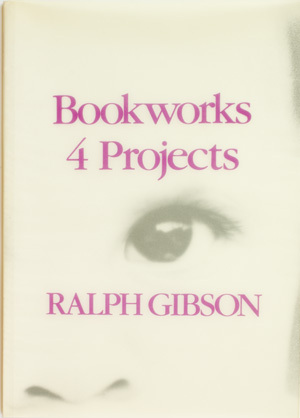 I "read" photobooks. Not always as strictly as I defined in this 2007 TOP essay, but essentially so. I do it all the time. Every day, probably. My book collection is no precious conceit; it's a working library that I use as a resource for self-education and enjoyment.
I "read" photobooks. Not always as strictly as I defined in this 2007 TOP essay, but essentially so. I do it all the time. Every day, probably. My book collection is no precious conceit; it's a working library that I use as a resource for self-education and enjoyment.
I generally keep all the photobooks I buy, even when I shouldn't. (This is kind of funny: recently I resolved to clean out my library and sell off all the titles I don't really want, to free up shelf space and make my collection leaner. So what became of that? I ended up buying a dozen new books over a six-month period that I suddenly just "had to have," and, after much agonizing, came up with a whopping four older ones that I decided I could live without! And then I decided, since there were only four, that I might as well keep them. That's the mindset of the collector, as collectors who read this will readily recognize.)
Anyway, when I talk about a certain older title rising in value, here's what I almost always mean: Good thing I already own it, because I couldn't afford to buy it now.
(Let's not talk about the opposite, which amounts to, "I could have bought it a few years ago, but I missed my chance.")
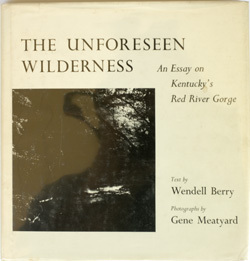 The market value of the most valuable book I own is about $2,500. The most cash I've ever paid for a book is—I think—no more than $150, for a book pictured in this post, although that was back when I had more money to toss around in devil-may- care fashion. I have plenty of books that are not replaceable now for less than $200, or $400, or even $1,000. I mentioned the other day that I own Helen Levitt's Crosstown, a particularly beautiful retrospective published in 2001 by Powerhouse. I've been trying to remember, and I think, although I'm not certain, that I paid $50 for it—that's on the high side for me; not very many of the books I buy are that expensive. Nowadays, according to Geoff, it goes for $950 (abebooks.com lists one for more than $1,800). But am I patting myself on the back for having made a good investment? Not at all. It's not cash on the shelf to me. It's not liquid. I'm never going to be able to bring myself to part with it, and I know that. I'm simply relieved that I already have it, because it's completely out of reach now.
The market value of the most valuable book I own is about $2,500. The most cash I've ever paid for a book is—I think—no more than $150, for a book pictured in this post, although that was back when I had more money to toss around in devil-may- care fashion. I have plenty of books that are not replaceable now for less than $200, or $400, or even $1,000. I mentioned the other day that I own Helen Levitt's Crosstown, a particularly beautiful retrospective published in 2001 by Powerhouse. I've been trying to remember, and I think, although I'm not certain, that I paid $50 for it—that's on the high side for me; not very many of the books I buy are that expensive. Nowadays, according to Geoff, it goes for $950 (abebooks.com lists one for more than $1,800). But am I patting myself on the back for having made a good investment? Not at all. It's not cash on the shelf to me. It's not liquid. I'm never going to be able to bring myself to part with it, and I know that. I'm simply relieved that I already have it, because it's completely out of reach now.
My son should be happy it's worth $950. Maybe it'll be worth even more when he inherits it. But me, I'm just glad I don't have to come across references to it and think, damn, there's another one that got away.
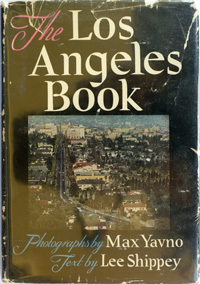 I have books of all sorts in my collection. I even have one ex-library copy (I usually avoid ex-lib copies like the taint)—it's a "rescue" copy of Cartier-Bresson's book about Russia. It amused me because the library that jettisoned it put a big stamp on the title page that says "OUT OF DATE—CONTENTS NO LONGER RELEVANT." Ha! Says them. I like having it in my collection just to prove the stamper wrong. Value? Maybe $6? Essentially, nothing.
I have books of all sorts in my collection. I even have one ex-library copy (I usually avoid ex-lib copies like the taint)—it's a "rescue" copy of Cartier-Bresson's book about Russia. It amused me because the library that jettisoned it put a big stamp on the title page that says "OUT OF DATE—CONTENTS NO LONGER RELEVANT." Ha! Says them. I like having it in my collection just to prove the stamper wrong. Value? Maybe $6? Essentially, nothing.
But I don't value books based on what they're worth. I buy remainders and used books, and I have flea-market finds sitting next to valuable association copies on my shelves. I'm sure I have some "valuable" books I think are third-rate. In fact, come to think of it, I really have no idea what some of my books are worth at all. I'm sure the "worth" of some of my treasures would disappoint me, just as the value of some of my "junk" would amaze me.
Sometimes you really do have options. The copy of Danny Lyons' The Bikeriders pictured above is the 1997 Twin Palms reprint, in hardcover. I paid $150 for that one, because I knew I could never afford a copy of the 1968 first and I was anxious about missing a shot at the reprint. My copy is now worth…about what I paid for it, give or take. But you can still—today—buy a perfectly good softcover from Chronicle Books for a whopping $15.61. I haven't seen the reproductions in the Chronicle softcover, but how bad could they be? So I made a misstep with that one. All things considered—given that I'm not a motorcycle enthusiast—that's probably the direction I should have gone with that title. But when I bought the Twin Palms reprint, in about 1998, how was I to know there'd be a good softcover reprint coming from Chronicle in 2003?
And that's just it—you never know. The rule for collecting books, therefore, is the same as for collecting photographs themselves: Buy what you like. Consider its market value of course; that's part of the game. You certainly have to consider value when the value is also the price. But if you don't enjoy owning something for its own sake, for the purposes of visiting it from time to time, learning from it, enjoying it, what's the point?
____________________________
Mike
Featured Comment by Roy: "I've frequently sought out books after reading about them here—not for profit but simply because I know our tastes are similar. I've yet to be disappointed with any one of them. I'm particularly gladdened to see The Unforeseen Wilderness accompany this article. I bought a copy a while ago and it's a magical little book. My library of 'photobooks' accumulated over nearly forty years is a continual source of unalloyed pleasure."
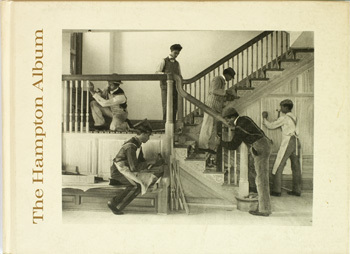
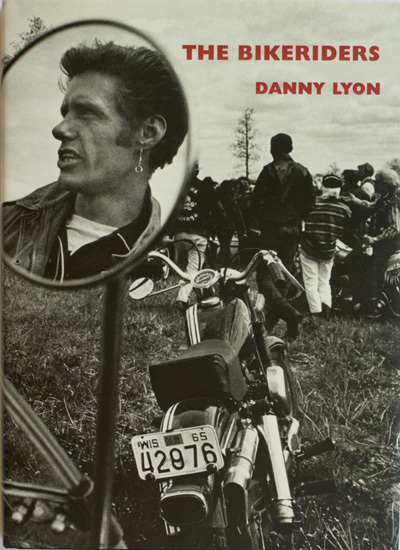



I have the Chronicle edition of The Bikeriders & the reproduction quality is excellent. It also has some colour photos that were not included in the original edition. Unless you are a mad collector most people would probably be better off with this latest edition.
One point I would like to make about judging book values by prices listed on abebooks or amazon second hand market is that these are just asking prices. There are some dealers who list incredibly high prices in hope of snaring some sucker. I would need to see evidence that people are regularly paying those high prices before I would accept that was their value. I'm not denying that some photobooks are worth a lot, just that I don't accept a dealers asking price as market standard.
Posted by: Michael W | Wednesday, 14 May 2008 at 10:42 PM
Funny you should mention it.
Just before heading to the computer (and logging onto TOP) I was sitting in my recliner and thinking how pleasant it was that I could enjoy a very nice library of photography (books).
Tonight I seemed to be particularly interested in landscapes, probably due to a Canadian trip I have planned in the Autumn to visit photography friends and shoot B&W LF landscapes.
I was looking at Roman Loranc's "Two-Hearted Oak," John Blankmore's "Black and White Workshop," and Paul Strand's "Retrospective 1915-1968" from Aperture.
Such a privilege.
Posted by: Bill Mitchell | Wednesday, 14 May 2008 at 11:26 PM
Simple comment: nice post! Well written, well said.
Posted by: Andy Smith | Thursday, 15 May 2008 at 12:08 AM
"Such a privilege."
Bill,
TOTALLY. You got that right. I feel the same way. Like having a huge, great museum right here at home.
Mike J.
Posted by: Mike Johnston | Thursday, 15 May 2008 at 12:35 AM
Andy,
Thanks!
Mike J.
Posted by: Mike Johnston | Thursday, 15 May 2008 at 12:36 AM
I had "Crosstown" on my list since the earlier posts regarding it. Now..."I could have bought it a few months ago, but I missed my chance."
Posted by: vbsoto | Thursday, 15 May 2008 at 12:49 AM
Back when I was getting back into photography in 2001, I picked up a copy of Crosstown after seeing it in a book store. I was taken by the linen cover and the tipped in picture on the front. I can't tell you how many times I've looked at is since. I get such a kick out of looking through that book, including certain pages that make me laugh out loud. That was the first book, there have been many since, including a few that have gone to similar levels in the secondary market.
Sell it? Never gonna happen.
Joe
Posted by: Joe Sawicki | Thursday, 15 May 2008 at 01:35 AM
Mike,
Why do ex lib books turn you off? they are often great bargains and you get the content.
Jay
Posted by: Jay | Thursday, 15 May 2008 at 07:46 AM
if you knew how low the replacement cost of library books is, you might be, oh, tempted to "lose" a few titles.
Posted by: aizan | Friday, 16 May 2008 at 02:07 AM